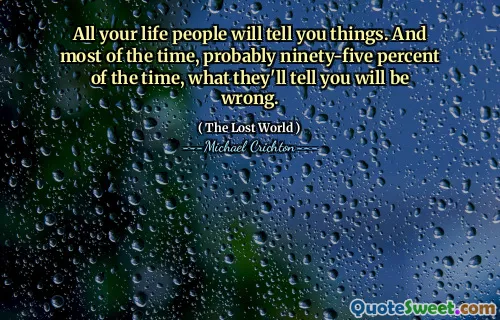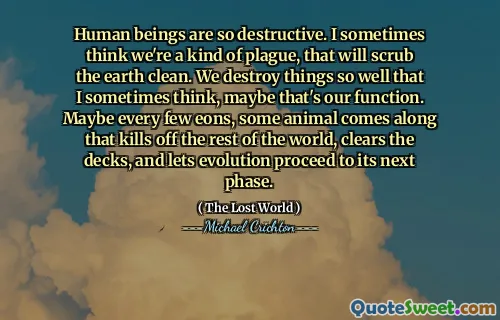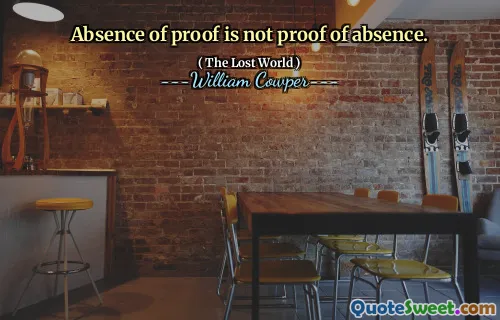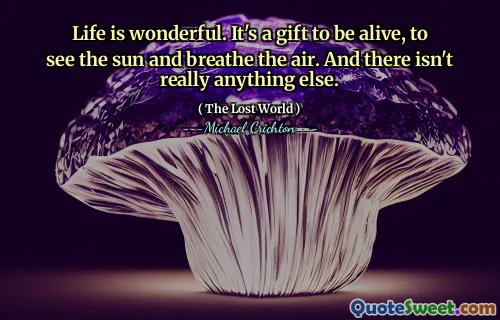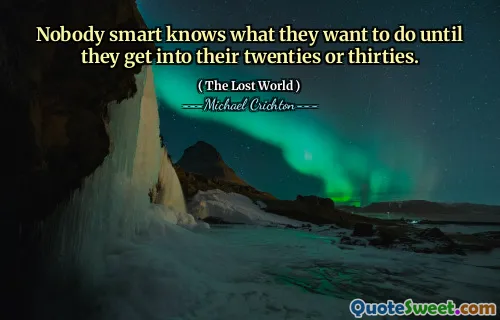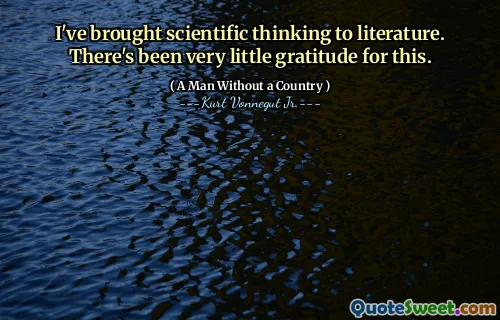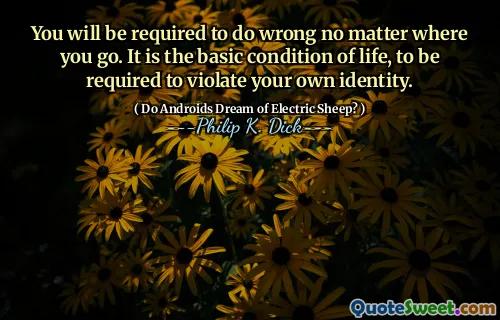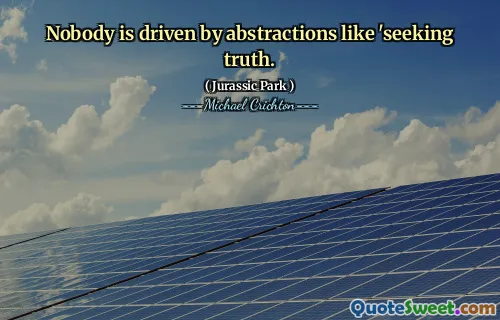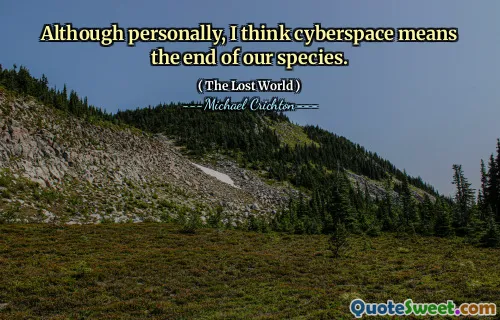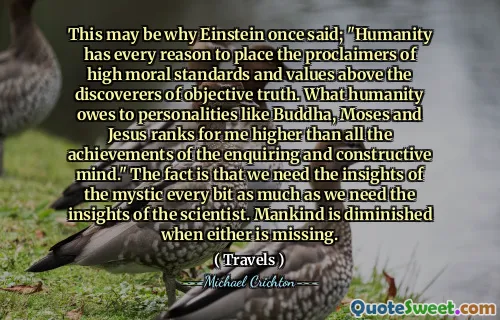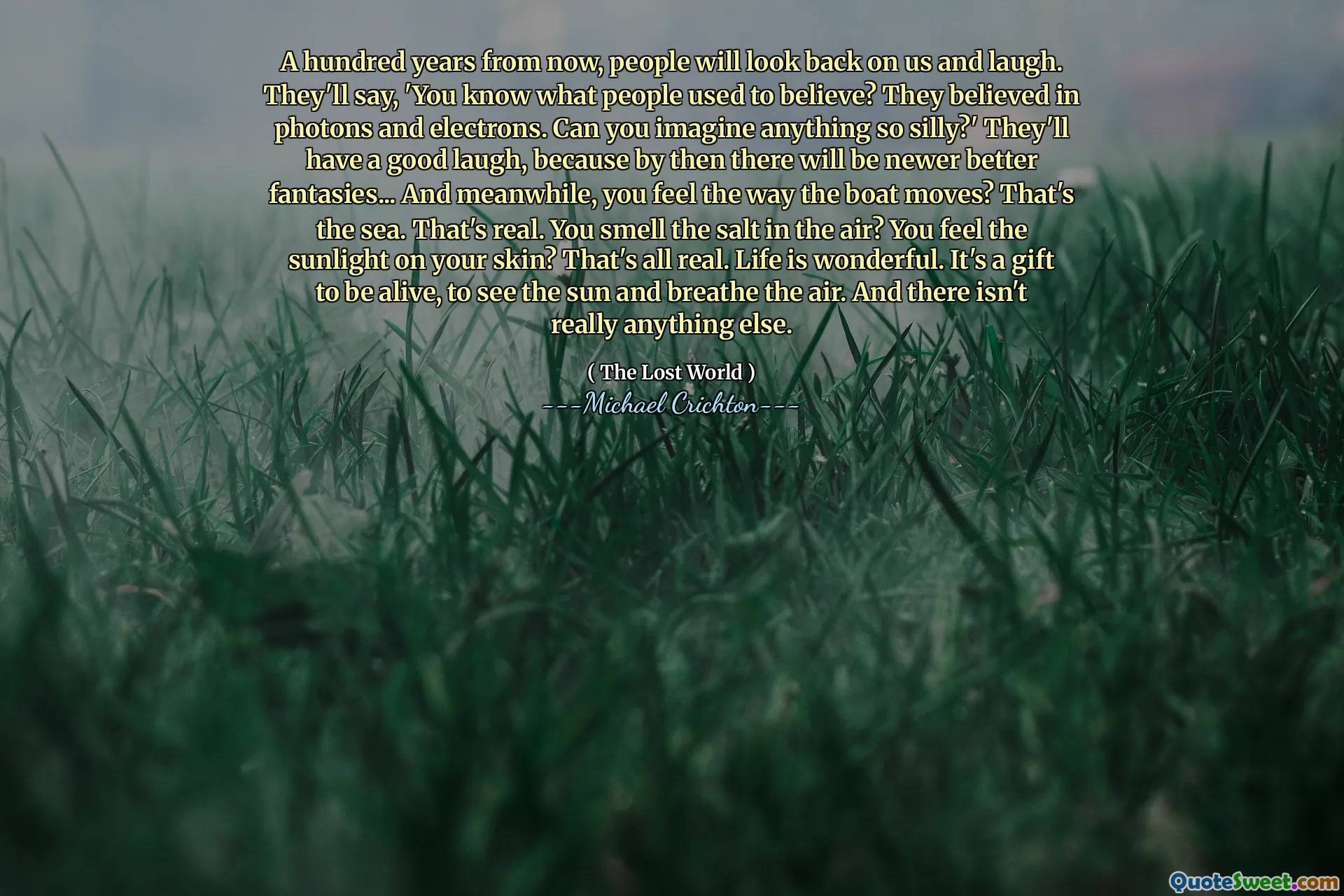
从现在起一百年后,人们会回顾我们并笑。他们会说:“你知道人们以前相信什么吗?他们相信光子和电子。你能想象什么那么愚蠢吗?他们会大笑,因为那时会有更新的更好的幻想……与此同时,您会感觉到船的移动方式吗?那是大海。那是真实的。你闻到空气中的盐吗?您感觉到皮肤上的阳光吗?这都是真实的。生活是美好的。活着,看到太阳并呼吸空气是一种礼物。而且没有其他任何东西。
(A hundred years from now, people will look back on us and laugh. They'll say, 'You know what people used to believe? They believed in photons and electrons. Can you imagine anything so silly?' They'll have a good laugh, because by then there will be newer better fantasies... And meanwhile, you feel the way the boat moves? That's the sea. That's real. You smell the salt in the air? You feel the sunlight on your skin? That's all real. Life is wonderful. It's a gift to be alive, to see the sun and breathe the air. And there isn't really anything else.)
叙述者在迈克尔·克里奇顿(Michael Crichton)的《失落的世界》(The Lost World)的反思性段落中猜测了人类的未来观点,这表明人们会发现当前的科学信念,例如周围的光子和电子,有趣的。他预计,子孙后代将会发展出新的理解,从而使过去的信念看起来很幼稚。这种思想突出了知识的不断发展的本质,以及当前的真理有一天如何被视为过时甚至荒谬。
尽管考虑了转变的信念,但叙述者还是强调了有形,感官体验的重要性。他指出了自然的现实,敦促人们对生活的简单喜悦表示赞赏:海洋的运动,盐空气的气味和阳光的温暖。这些生存的要素被庆祝为真正的重要意义,提醒读者,活着和经历周围世界的本质是一种宝贵的礼物,比抽象理论重要得多。
